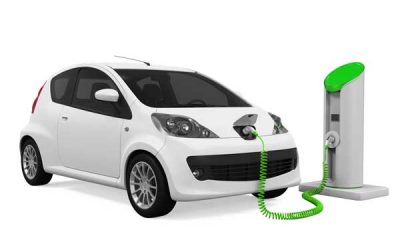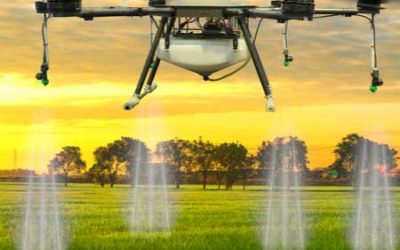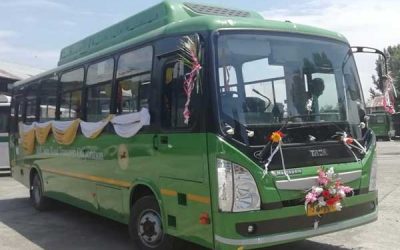After a shaky start in the FY21, due to the pandemic-induced weak business sentiments Tata Consultancy Services (TCS), top global IT services, consulting, and business solutions firm, made a solid comeback in the latter half of the year. (See: Technology trends for businesses in 2020). TCS’s strong growth momentum is the result of its persistent efforts to build transformational solutions and robust business fundamentals.
After seeing a drop in its revenues in April this year, the country’s largest software services firm successfully navigated the operational challenge of scale, velocity, and complexity in an unbelievable manner. Its net profit in the quarter ended September 30 rose nearly 5 percent y-o-y to ₹8,433 crores. The IT major had clocked a net profit of ₹8,042 crores in the September 2019 quarter.
A couple of days back, India’s largest IT Services firm’s share price reached an all-time high of ₹2,948 on the National Stock Exchange (NSE), with a market capitalization of ₹11. 03 lakh crore. One needs to note that TCS is the only company in India to reach this milestone after Reliance.
With its deep focus on the cloud, TCS share prices have made great strides this year, growing by more than 30% since March 2020. It was only because of its confidence in its capabilities to meet the rising Dx demands that TCS embarked on a recruiting frenzy even during the pandemic. It even declared salary hikes for its employees from October this year. (See: It turned out to be a good year for Indian IT services firms)
In Q2 2020 alone, TCS announced that it signed total contract deals worth $8.6 billion.
Let’s deepen our understanding of the secret recipe that has helped the IT major generate a positive climate around its growth even during crisis times.
Readying in time for Dx opportunities
TCS’s growth has been principally marked by its rising focus on cloud and accelerated digital transformation initiatives. Over the last twelve months, India’s largest software services exporter has made substantial headways into expanding its footprints in building new and innovative cloud offerings.
As discretionary spending and virtual work environment are gaining steam, businesses move from legacy to digital IT infrastructure. These changing dynamics have resulted in TCS witnessing strong growth across banking, financial services, insurance (BFSI), healthcare, and retail verticals in Q2’21. While BFSI grew at 6.2%, Retail saw a massive 8.8% growth and Life Sciences and Healthcare at 6.9% sequentially and 17.2% on a YoY basis.
The IT services giant has a strong focus on the BFSI sector, particularly in the wake of Europe’s growing demand. Most BFSI companies in Europe are reorganizing their IT structure and focusing on digital transformation, and this provides it a significant opportunity to accelerate growth.
In a statement issued to press and analysts recently, Rajesh Gopinathan, Chief Executive Officer and Managing Director of TCS mentioned that TCS’s revenues from Europe have more than doubled in the last five years. He reflected that substantial success was the result of TCS’s enterprise agility and machine first delivery model.
This year, TCS has also set up a new European cloud center in Finland to provide end-to-end infrastructure services. In 2021, the center is expected to expand even further to support its growing customer base.
On the acquisitions front, it announced a couple of purchases recently to beef up its BFSI portfolio – Frankfurt-based Postbank Systems AG and a certain percentage of Ireland base Pramerica Systems from insurance firm Prudential Financial Inc (PFI).
The company is also focusing extensively on its agile-based Secure Borderless Workspaces (SBW) model, which it launched recently during the lockdown. SBW is a new cloud-based operating model for businesses to seamlessly deploy virtual workspaces while taking full advantage of existing talent ecosystems and related investments.
TCS Q2’21 growth performance
|
Region |
Growth (in %) |
|
India |
20 |
|
EMEA |
8 |
|
Continental Europe |
6.1 |
|
Latin America |
5 |
|
UK |
3.8 |
|
North America |
3.6 |
|
Asia Pacific |
2.9 |
New focus areas
Amidst the pandemic, most global enterprises have fast-tracked their transformation initiatives to beef-up their cloud-based foundations for a safe and resilient remote-work environment. There is growing momentum towards deploying AI and automation solutions for future business continuity in the remote work environment.
Given the above, TCS has been working hard to integrate accessibility and contactless aspects into its most recent digital transformation solutions portfolio. It has also invested significantly to develop deep-technology expertise and strengthening cyber resiliency services with built-in service assurance, data segregation, and compliance with various local regulatory requirements. In October this year, the company unveiled 10 new threat management centers worldwide to provide cybersecurity services to its enterprise customers.
It also introduced several internets of things (IoT) related research and innovation programs for visionary and autonomous infrastructure, personalized medicines, and smart machines.
A wide range of research and development efforts are also being undertaken to create intellectual property (IP) on the sustainability front by leveraging emerging technologies and developing solutions around them. TCS is even venturing into data masking tools, cryptography, hash control, and access rights management for taking a substantial leap and achieve better growth in 2021.
Another crucial focus area for TCS is the machine learning approach, i.e., delivering cloud-based solutions based on AI, automation, and actionable insights to improve operational efficiency.
Maintaining a strong outlook
COVID-19 has turned out to be a catalyst for business transformation. Due to the pandemic-induced lockdowns, enterprises are rapidly scaling their digital efforts to reduce their operating expense, protect their market position, and ensure customer retention. As such, TCS, which is putting automation and new age technologies at the core of its comprehensive service offerings, is in an exceptional place to continue winning the trust of its existing clients and gain new customers
In 2021, it is expected that most enterprises will continue to see an exponential rise in their technology budgets to improve their innovation capabilities and redefining their customer experience. Touchless solutions and remote monitoring solutions, in particular, will gain significant adoption.
While TCS may see a slowdown in its accounting books due to pandemic-caused delayed revenue realizations, its strong technological fundamentals and cash position will make it an essential driver of change in many global companies’ digital transformation efforts.
By leveraging differential technologies, TCS is positioning itself to become a digital transformation leader and gain a future edge.














0 Comments